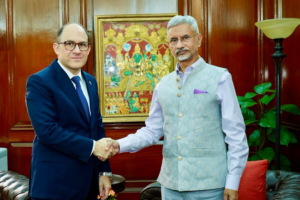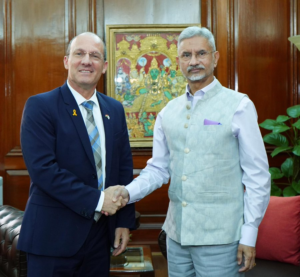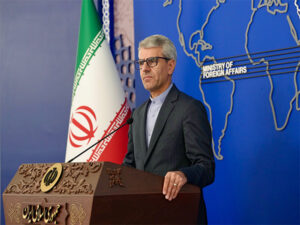Banda Singh Bahadur: Warrior who laid foundation of 1st Sikh empire
Punjab [India], May 16 (ANI): Few individuals stand out as strongly in Indian history as the fascinating and mysterious Banda Singh Bahadur.
He was a warrior, a saint, and a revolutionary who built the first Sikh empire by resisting the massive Mughal regime and planting the seeds of a legacy that would endure for all time, reported Khalsa Vox.
Lachman Dev was a Rajput from the Jammu region who was born around 1670, during the turbulent Mughal era. His journey to Banda Singh Bahadur, the harbinger of Sikh sovereignty, is the remarkable story of his political and spiritual awakening.
Lachman Dev abandoned his austere lifestyle, accepted Sikhism, and was baptised as Banda Singh Bahadur after having a chance encounter with Guru Gobind Singh, the tenth Sikh Guru, in Nanded.
Guru Gobind Singh acknowledged the potential in this newly converted Sikh and gave him the enormous responsibility of leading the Sikh community against the oppressive Mughal authority.
Armed with a double-edged sword, five arrows, and the guru’s blessing, Banda Singh Bahadur set off for Punjab and started a chain of events that would alter the path of Indian history, according to Khalsa Vox.
Banda Singh Bahadur’s military prowess shined out in the Battle of Samana in 1709, where he led a rag-tag group of Sikhs against the well-equipped Mughal army.
They won while using guerilla tactics and relying solely on the strength of their conviction, taking control of the crucially important city of Samana.
This battle dispelled the illusion of Mughal invincibility, which was more than simply a military success.
The next notable accomplishment was the conquest of Sirhind, the location of Guru Gobind Singh’s two younger sons’ cruel execution.
For the Sikhs, the Battle of Sirhind was more than just a battle of guns; it represented a desire for justice.
The Mughals were defeated by the Sikhs under the tenacious leadership of Banda Singh Bahadur, and Sirhind came under Sikh rule in May 1710, as per a report published in Khalsa Vox.
Banda Singh Bahadur’s legacy continues to shine, and his story is always being told and retold because it embodies the tenacity of the human spirit and the never-ending pursuit of justice.
His life really embodied the Sikh principle of “Sarbat da Bhalla” – the wellbeing of all. It is a legacy that echoes down the ages, imploring us to defend the ideals of justice and equality, to combat oppression head-on, to carry the flame of courage and conviction in our hearts.
We are left with a sense of profound admiration for Banda Singh Bahadur as we delve into the pages of history to learn about his life and times, but we are also left with a sense of purpose: to adopt his principles, to take inspiration from his indomitable spirit, and to work towards a world that echoes his vision of equality, justice, and freedom.
The life of Banda Singh Bahadur serves as a powerful reminder of the strength of the individual, the courage of conviction, and the enduring impact of a genuinely outstanding life in a time when oppression and power sometimes go hand in hand, Khalsa Vox reported.






